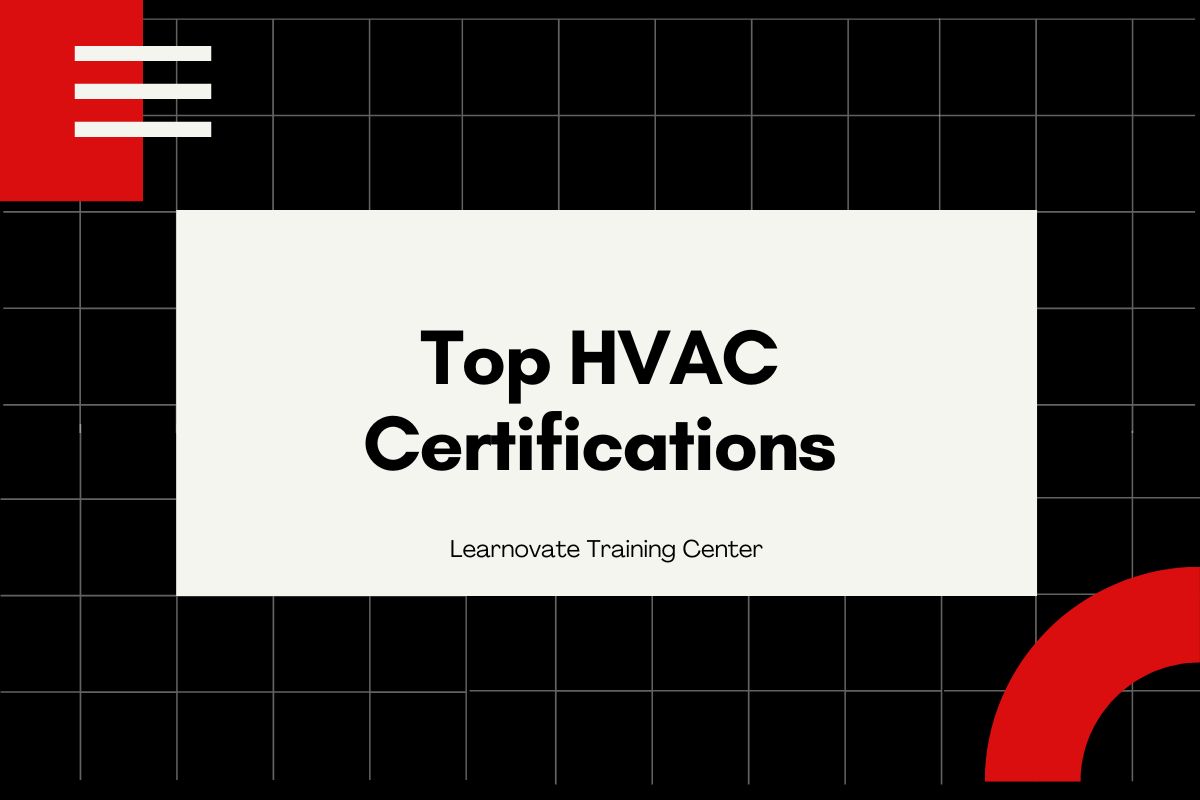Heating, Ventilation, and Air Conditioning (HVAC) is a critical industry that keeps homes and businesses comfortable year-round. As technology in this field continues to advance, getting certified in HVAC can significantly boost your career. HVAC Certifications not only validate your skills but also open up more job opportunities. Whether you’re just starting or looking to advance, earning the right certifications is key to success in this field.
Many employers prefer hiring HVAC technicians with certification because it shows a high level of expertise. HVAC Certifications provide a structured way to improve your skills, understand the latest technology, and become a trusted professional. In this blog, we will discuss the top HVAC certifications and why they are important for your career growth.
What Are HVAC Certifications?
HVAC Certifications are special courses that verify a technician’s skills in the installation, repair, and maintenance of HVAC systems. These certifications prove that you have the knowledge and skills to handle complex systems and perform quality work. By earning HVAC Certifications, you’ll demonstrate to employers and clients that you’re capable of handling real-world HVAC challenges.
Certification also gives you the ability to troubleshoot issues, which makes you a valuable asset in the HVAC industry. Employers look for certified technicians because they are confident in their abilities to solve problems efficiently. By being certified, you show that you take your career seriously and are dedicated to staying up to date with industry standards.
Top HVAC Certifications for Your Career
There are many HVAC certifications available, but some are more valuable in the job market. The following are the top certifications you should consider:
1. EPA Section 608 Certification
The EPA Section 608 Certification is required for any technician who works with refrigerants. This is a legal requirement in the United States, and it ensures that technicians understand how to handle hazardous materials properly. This certification has three levels: Type I, Type II, and Type III, depending on the types of systems you’ll be working on.
Getting the EPA Section 608 Certification shows that you are qualified to handle refrigerants safely, which is a critical skill in the HVAC industry. Without this certification, you cannot legally perform HVAC work that involves refrigerants. It’s a basic certification that opens many doors for entry-level positions.
2. NATE Certification (North American Technician Excellence)
NATE is one of the most recognized certifications in the HVAC industry. Earning a NATE certification demonstrates that you have the skills and knowledge to work in various HVAC settings. It is a voluntary certification, but many employers prefer hiring NATE-certified technicians because they know these professionals have passed a rigorous exam.
Having a NATE certification not only makes you more attractive to employers but also builds trust with clients. When customers see that you’re NATE-certified, they know they are dealing with a qualified technician. This certification is highly recommended for anyone looking to advance in their HVAC career.
How HVAC Certifications Impact Your Career Growth
3. RSES Certification (Refrigeration Service Engineers Society)
The RSES Certification is a respected credential in the HVAC industry. It covers a broad range of topics, including system design, installation, and maintenance. Having this certification shows that you have a deep understanding of HVAC systems and are committed to your professional development.
Obtaining an RSES certification can boost your confidence as well as your marketability. Employers often look for technicians with this certification, especially when hiring for advanced or specialized positions. If you’re looking for a certification that enhances your career prospects, Learnovate Training Center offers an excellent HVAC Certification program tailored to your needs.
4. HVAC Excellence Certification
HVAC Excellence offers a variety of certifications aimed at both entry-level and experienced professionals. This certification focuses on improving skills and knowledge, which is crucial in a fast-evolving field like HVAC. It’s recognized nationwide, making it a valuable asset for technicians aiming to work in different locations.
With an HVAC Excellence certification, you can prove that you have mastered the technical aspects of HVAC systems. This certification also helps you stand out in a competitive job market. Many HVAC technicians find that obtaining this certification opens up more opportunities for career advancement.
Why HVAC Certifications Matter
5. Benefits of Certification for Job Seekers
HVAC Certifications can greatly benefit your career by making you stand out in a crowded job market. Employers are more likely to hire someone with certifications because it shows they have the knowledge and expertise to do the job right. Certifications also demonstrate that you’re committed to your career and willing to invest time in learning new skills.
By earning HVAC certifications, you increase your chances of getting higher-paying jobs. Certified technicians are often offered more competitive salaries, as employers know they are capable of handling complex tasks with less supervision. This not only enhances your professional reputation but also opens the door to better career opportunities.
6. The Importance of Staying Updated
Technology in the HVAC industry is constantly changing, and getting certified allows you to stay updated with the latest advancements. Many certification programs include courses that teach you about new technologies, such as energy-efficient systems and smart HVAC controls. Staying current with these technologies can make you more valuable to employers.
Additionally, by staying up to date, you will be better equipped to solve modern HVAC challenges. Clients are more likely to trust technicians who have a deep understanding of the latest technologies. Staying certified helps you stay competitive in the HVAC field.
How to Choose the Right HVAC Certification
7. Entry-Level vs. Advanced Certifications
When choosing the right HVAC certification for your career, it’s important to understand the difference between entry-level and advanced certifications. Entry-level certifications, such as the EPA Section 608, are designed for technicians who are just starting their careers. Advanced certifications, like NATE or HVAC Excellence, are aimed at those who have some experience and want to specialize in certain areas.
Before you decide, consider where you are in your career and what your goals are. Entry-level certifications will help you get your foot in the door, while advanced certifications can help you move up in the industry. It’s always a good idea to start with basic certifications and build from there.
8. Certifications Tailored to Specific Needs
Some certifications are designed for technicians who specialize in certain types of systems. For example, if you plan to work in refrigeration, the RSES certification is a good choice. If you want to specialize in energy-efficient systems, HVAC Excellence offers programs that focus on green technologies.
Choosing a certification that matches your career goals will help you become an expert in your chosen field. This not only makes you more valuable to employers but also gives you the confidence to take on more challenging projects. For more information on certification programs, visit the EPA’s official website.
Conclusion
In the HVAC industry, certifications are more than just a piece of paper. They are proof of your skills, knowledge, and commitment to your career. Earning top HVAC certifications like EPA Section 608, NATE, RSES, and HVAC Excellence shows employers and clients that you are a capable and skilled professional.
Whether just starting your HVAC journey or looking to advance in your career, earning these certifications can significantly improve your job prospects. They will help you stand out in a competitive job market and allow you to take on more specialized roles. HVAC Certifications are a powerful tool for anyone looking to build a long-lasting career in this field.
For more details on certifications and how to get started, visit the official NATE website.













